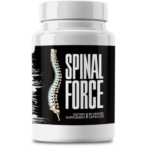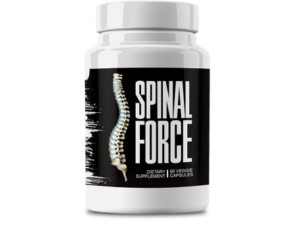This Village-Made Chinese Pain Reliever Eliminates Back And Joint Pain!
Stiffness & Pain: Why Both Knees Hurt Daily

Why Do Both My Knees Hurt Every Day? Understanding the Pain
Waking up with stiff knees or wincing every time you climb stairs? If both knees hurt regularly, you're in good company—but that doesn't mean you have to live with it. Bilateral knee pain (that's doctor-speak for "ouch, both sides!") can turn simple tasks into challenges. Whether it's arthritis whispering "hello" or your active lifestyle catching up with you, getting to the bottom of it is key. Let's explore what's really going on, how to spot the warning signs, and—most importantly—what actually helps.
Bilateral Knee Pain: More Than Just an Ache
While occasional knee pain is common, persistent discomfort in both knees often hints at something bigger—like arthritis or repetitive stress. Unlike a one-time injury, this type of pain usually needs a game plan that looks at your whole body. And here's why you shouldn't ignore it: that morning stiffness could snowball into serious mobility issues down the road.
Just How Common Is This?
Here's a sobering stat: about 1 in 4 adults deals with regular knee pain. And bilateral cases? They're on the rise, thanks to our couch-loving habits, expanding waistlines, and the inevitable march of time. While older adults and women are most at risk, don't think you're off the hook if you're young or active—athletes and blue-collar workers often join this painful club too.
Your Knees: The Body's Shock Absorbers
Think of your knees as the hardest-working joints in your body. When both knees hurt, suddenly everything from grocery shopping to playing with your kids feels like a marathon. The good news? Addressing it early can keep you moving smoothly for years to come.
What's Really Causing Your Knee Pain?
Pinpointing the culprit is half the battle. Here are the usual suspects when both knees decide to rebel:
Osteoarthritis: The Wear-and-Tear Offender
OA isn't just "getting older"—it's your cartilage waving a white flag. This most common arthritis type turns simple movements into painful chores. Stiffness that eases as you move? Swelling after activity? That's OA knocking. Your risk goes up if your family tree includes arthritis or if you've had knee injuries before.
Rheumatoid Arthritis: When Your Body Turns Traitor
RA plays dirty—it's your immune system attacking your own joints, often both knees at once. The telltale sign? Stiffness that lingers over an hour in the morning, plus bonus symptoms like fatigue that make you feel like you're fighting the flu.
Overdoing It: The Price of Passion (Or Your Job)
Love running marathons? Work on your feet all day? That constant pounding can inflame tendons (hello, tendinitis) or irritate those fluid-filled cushions called bursae. Even "healthy" activities can backfire if you don't give your knees a break.
Extra Pounds = Extra Pain
Here's some tough love: every 10 pounds you carry puts 30-40 pounds of pressure on your knees with each step. It's like strapping a backpack full of bricks to your joints 24/7. No wonder obesity speeds up cartilage breakdown.
Not Just Pain: Other Symptoms to Watch For
Your knees have other ways of saying "help!" besides pure pain:
The Stiffness-Swelling Duo
Knees that feel like rusty hinges in the morning or look puffy like overstuffed pillows? That's inflammation throwing a party in your joints. Warmth or tightness often crashes the party too.
Snap, Crackle, Pop—Should You Worry?
Some knee noises are harmless (like bubble wrap popping), but painful clicks or grinding sensations? That's likely cartilage crying uncle. Pain-free pops usually aren't emergencies, but anything that hurts deserves a look.
When Simple Moves Feel Like Obstacle Courses
If bending to tie your shoes or walking through the mall leaves you exhausted, your joints or muscles might be waving a white flag. Weak thigh muscles are often accomplices in this crime against your mobility.
Getting Answers: The Diagnosis Process
Playing detective with knee pain? Here's what to expect:
Time to Call the Doctor?
If pain overstays its welcome (more than two weeks), ruins your sleep, or brings friends like redness and fever, it's doctor time. Sudden swelling? That's your cue to skip the waiting game.
Picture This: Imaging Tests Explained
X-rays show the bone story (spurs, narrowing joint spaces), while MRIs reveal the soft tissue drama (ligament tears, meniscus mischief). Ultrasounds? Great for spotting inflammation's calling card—excess fluid.
What Your Blood Can Reveal
If RA's suspected, simple blood tests check for inflammatory markers like ESR or rheumatoid factor. Think of it as your body leaving breadcrumbs for doctors to follow.
Fighting Back: Effective Treatment Options
From quick fixes to long-term solutions, here's your pain-fighting toolkit:
Medications: From Pharmacy to Injection
NSAIDs (like ibuprofen) are the infantry in this battle—reducing inflammation and pain. For really bad flare-ups, corticosteroid shots can be like calling in the special forces (but they're not for frequent use).
Physical Therapy: Your Knees' Personal Trainer
A good PT doesn't just give you exercises—they give you back your life. Expect a mix of stretches (hello, hamstrings) and strength moves (quadriceps, we're looking at you) to stabilize those complaining joints.
Small Changes, Big Relief
Here's some motivation: shedding just 5-10% of your weight can cut knee stress dramatically. And swapping pavement-pounding runs for swimming or cycling? Your knees will thank you with every pain-free step.
When Surgery Becomes the Best Option
For severely damaged joints, knee replacements have come a long way. Yes, recovery takes months—but so does living with constant pain. Many patients wish they'd done it sooner.
DIY Relief: Home Remedies That Actually Help
Before you reach for another pain pill, try these home-front tactics:
The Ice-Heat Tango
Ice is your go-to for fresh swelling (20 minutes on, 20 off—no cheating!). Heat works wonders on stiffness—try a warm bath or heating pad while binge-watching your favorite show.
Knee Braces: Fashionable Support
Today's braces aren't your grandpa's clunky contraptions. Sleek sleeves provide compression and support, while more structured braces help align problem joints.
Three Must-Try Knee-Friendly Moves
- Straight-leg raises: The lazy person's quad workout—lie down, lift one leg, hold. Repeat until your thighs complain (that means it's working).
- Seated hamstring stretch: Perfect for desk jockeys—extend one leg and reach (no bouncing!). Breathe through the burn.
- Wall sits: The exercise you love to hate—slide down a wall until thighs are parallel to floor. Time yourself (and try not to cry).
Keeping Future You Pain-Free
An ounce of prevention beats a pound of knee replacement. Here's how to stay ahead:
Weight Management: Not Just About Looks
Eating for knee health means loading up on anti-inflammatory foods (think salmon, berries, olive oil) and staying hydrated. Your joints crave nutrients as much as your taste buds do.
Shoes Matter More Than You Think
Those worn-out sneakers? They're accomplices in your knee pain. Invest in supportive footwear—your knees feel every step you take in bad shoes.
Rethinking "No Pain, No Gain"
If jogging leaves you hobbling, try elliptical machines or yoga. Being active shouldn't mean punishing your joints—find activities that love you back.
Wrapping Up: Your Knees Deserve Better
The Short Version
- Two painful knees often point to arthritis, overuse, or weight issues
- Getting the right tests means getting the right treatment
- The best approach mixes meds, movement, and lifestyle tweaks
One Last Thing...
Chronic knee pain isn't something to "just live with." If both knees hurt daily, take action today—your future self will high-five you (without wincing). Start with your doctor, try one new remedy this week, and remember: every step toward better knee health counts.








